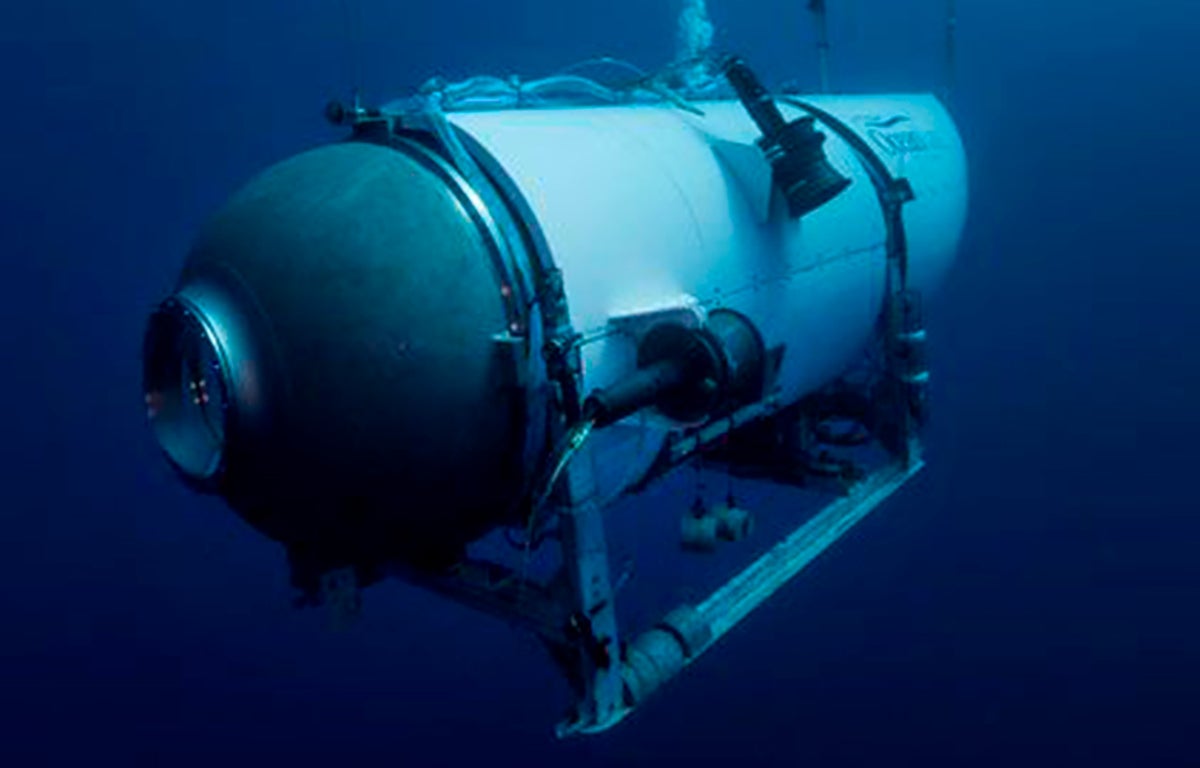What was the banging noise picked up in search for Titanic sub?


An implosion that killed five crew onboard the Titan submersible is now the focus of investigations by agencies from four countries.
The sub was destroyed less than two hours into a dive to the Titanic shipwreck on 18 June, claiming the lives of OceanGate Expeditions CEO Stockton Rush, father and son Shahzada and Suleman Dawood, Hamish Harding, and Paul-Henri Nargeolet.
Secret US Navy listening devices detected an “anomaly” near the Titanic shipwreck soon after the Titan departed from its support ship the Polar Prince, which is believed to be the moment sub suffered a “catastrophic implosion” of its carbon fibre hull.
Follow the latest updates on the missing Titanic submarine here
A desperate search for survivors continued for four days until a remotely operated vehicle (ROV) found a debris field that was later identified to be parts of the missing submersible. On 28 June, the US Coast Guard revealed that “presumed human remains” had been recovered from the sea floor near the debris.
Hopes had been raised when the US Coast Guard revealed that sonar devices had detected banging sounds coming from the search zone, a vast area of the North Atlantic Ocean twice the size of Connecticut.
The source of the banging sounds has not been identified, but experts have put forward several theories about their possible origin.
What were the banging noises?
On Tuesday 20 June, buoys detected “tapping sounds” coming from the search area, raising slim hopes that survivors could yet be found.
“We don’t know the source of that noise, but we’ve shared that information with Navy experts to classify it,” US Coast Guard Rear Admiral John Mauger told CBS This Morning.
The sound was detected at 2am local time by a Canadian P-3 aircraft.
It first came every 30 minutes and was heard again four hours later, the internal government memo obtained by CNN states.
The noises were picked up again on Wednesday 21 June.
Officials admitted that the noises were “inconclusive” and were being analysed by Navy experts as the search and rescue operation was still in full swing.
“With respect to the noises specifically, we don’t know what they are, to be frank with you,” Captain Jamie Frederick of the First Coast Guard District told reporters on Wednesday.
Mystery banging sounds were detected during the search for the Titan sub
(OceanGate Expeditions)
On 22 June, Carl Hartsfield, an expert with the Wood Hole Oceanographic Institution, told CBS News there were many possible explanations for the sounds.
“The ocean is a very complex place, obviously — human sounds, nature sounds, and it’s very difficult to discern what the sources of those noises are at times,” he told the news site.
The large number of vessels that were in the area would also emit noises picked up by sensors.
Some experts suggested that the banging sound was the noise of debris – from either the Titanic or the Titan – in the ocean.
Jeff Karson, professor emeritus of earth and environmental sciences at Syracuse University, told Mail Online while the search was underway that the noise could be a “complicated echo” coming from sounds bouncing around the Titanic debris field.
“It’s just not bouncing off of one thing. It’s bouncing off a bunch of things. And it’s like, you know, dropping up a marble into a tin can. It’s rattling around and that would confuse the location,” he told the publication.
He said the suggestion that the banging sounds may have been linked to survivors was “wishful thinking”.
“Is it really banging or just some unidentified sound? I think that is a more accurate description right now,” he said last Wednesday.
Stefan Williams, a professor of marine robotics at the University of Sydney, told Insider the sounds may have been created by marine wildlife such as whales.
He said there had been reports of marooned submarine crews banging on the vessel’s hull to signal their location, and that “acoustic noise will travel”.
Chris Parry, a former British Royal Navy commander, told TalkTV the sounds could have come from any number of underwater sources.
“You get a lot of mechanical noise in the ocean. Trying to differentiate it from tapping noises is a fool’s errand.”
xnxx,
xvideos,
porn,
porn,
xnxx,
Phim sex,
mp3 download,
sex 4K,
Straka Pga,
gay teen porn,
Hentai haven,
free Hentai,
xnxx,
xvideos,
porn,
porn,
xnxx,
Phim sex,
mp3 download,
sex 4K,
Straka Pga,
gay teen porn,
Hentai haven,
free Hentai,




